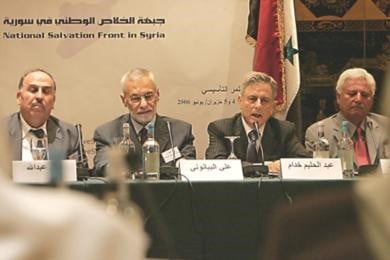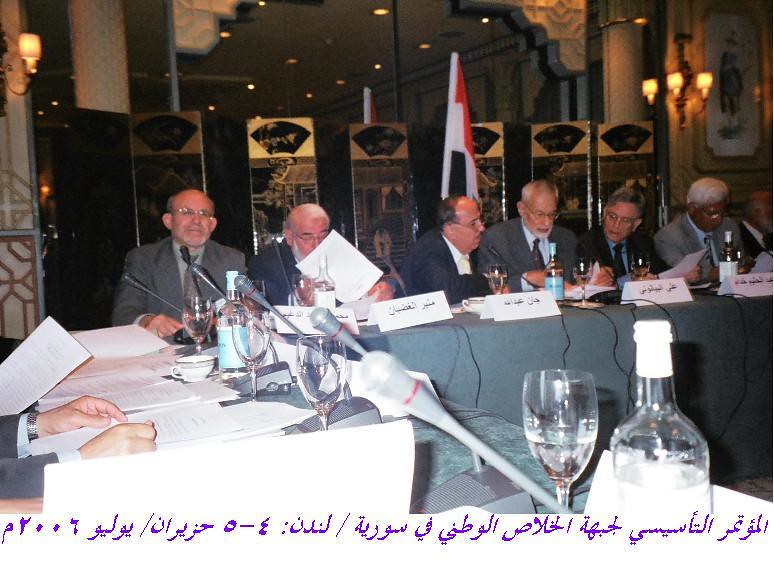On Sunday, a gathering of 50 figures from the Syrian opposition took place in London, which included former Vice President of Syria, Abdel Halim Khaddam, and the General Observer of the Muslim Brotherhood, Ali Sadreddin Al-Bayanouni. The objective of the meeting was to discuss peaceful methods of changing the regime in Damascus.
The Syrian opposition members convened for the “founding conference” of the National Salvation Front. Their aim is to bring about a regime change in Syria through peaceful means, firmly rejecting any external interference in the country’s affairs.
This initiative comes at a time when President Bashar Al-Assad’s regime is facing significant international pressure. The international community is urging Syria to fully cooperate with the investigation into the assassination of former Lebanese Prime Minister Rafik Hariri on February 14, 2005.
A source close to Khaddam informed AFP that the participants would establish the action program and leadership of the National Salvation Front during the meeting. The conference will conclude with a press conference on Monday.
During his opening speech at the conference, Khaddam characterized the current Syrian regime as a one-person and family system, serving as a breeding ground for corruption and fear.
He further expressed his belief that the regime is destined to collapse, as demonstrated by the arrest of intellectuals and individuals who dare to speak out. According to Khaddam, when words become more powerful than weapons, it is a sign that the regime’s downfall is imminent.
However, he acknowledged the significant challenges on the path to change and emphasized the need to recognize and overcome these difficulties.
Khaddam outlined two options for Syria. The first is to persist with the current situation, which he argued would lead to Syria’s demise, the people’s suffering, and their retreat. The alternative path is for Syria to return to the people, building a new democratic system that upholds the principles of power rotation through free elections. Such a system would guarantee citizens’ freedom, foster social and individual freedoms, establish justice and equality, and put an end to policies of isolation, discrimination, and exclusion.



